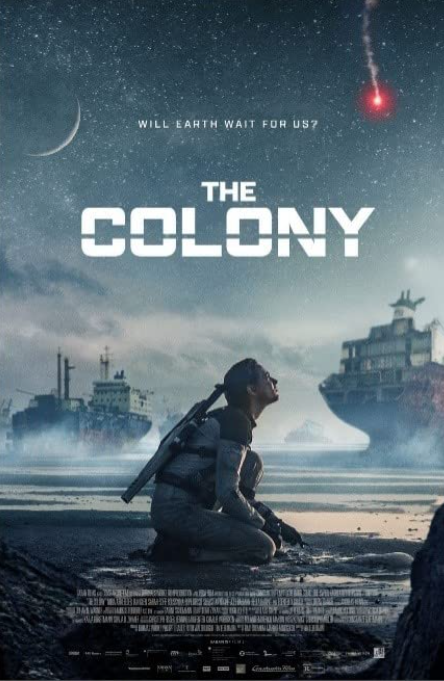
Well, I just saw The Colony (original name of the movie, Tides) on Netflix. This seems to be the season for post-apocalyptic stories, understandable given the dangerous state of our world, in areas ranging from COVID to climate to Russia massing troops on the border of Ukraine. I thought Station Eleven, a series on HBO Max based on Emily St. John Mandel's novel, was a masterpiece. I wouldn't say the same about The Colony. But I will say that, for my money, it's much better and more worth seeing than the massively popular Don't Look Up. (Though I'll also admit to you that I paid no money for either, other than the subscription price on Netflix.)
In The Colony, Earth has been devastated by both climate and plague, and some rich people on Earth have escaped to Kepler. a planet which we've indeed in our current reality identified as being in the Goldilocks zone, i.e, likely amenable to human life. But it turns out it's not that habitable after all because, although the Earthlings can survive there, they lose their fertility. In a last desperate move, they send two expeditions back to Earth, to see if perhaps our planet cured itself and was once again capable of supporting our demanding species, if not in the style to which we've become accustomed, at least in a way that enabled us to live beyond a single generation.
The answer is a qualified yes. The toxic environment is much better, but the people now living on the planet have reverted to barbarism. This aspect of the story is the least original, but the overall narrative still works well because our astronaut from Kepler, from the second ship from that arrives here, encounters survivors from the first voyage, with all kinds of repercussions and results.
I won't say anything more about the plot. But this Conradian/Keplerian "Heart of Darkness" in which Earth itself is that heart serves as a good tableau for a realistic morality play in the Asimovian tradition, in which humans who have made it far from our solar system are certainly different from those they left behind but are still part of our species, with all of our strengths and flaws. Fine work by Nora Arnezeder as Blake (the astronaut on the second voyage), Sebastian Roché as her father from the first voyage, Iain Glen, also from the first voyage, and Eden Gough as Neil, a precocious boy on Earth.

No comments:
Post a Comment